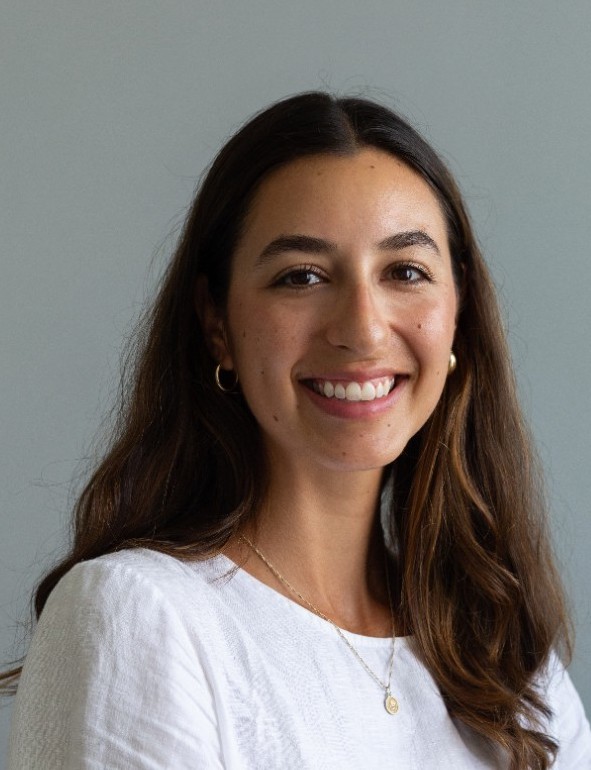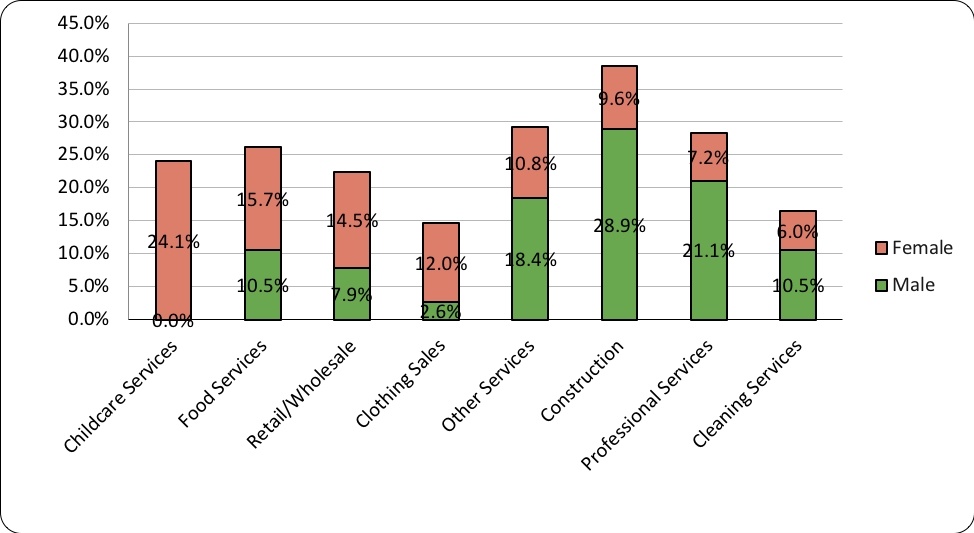Underserved and Underestimated: The Potential of Latinas to Reduce Poverty

Marissa Cuellar
UNO MPA Graduate Student
Read: Digital Commons
As a graduate student in UNO’s Master of Public Administration focusing on Public Policy, I am particularly interested in how Latino-owned businesses were (or were not) supported by local and federal government throughout the pandemic and what the long-term recovery for communities such as South Omaha looks like. Knowing that Latinos are the fastest growing minority demographic in the country and that they are largely employed in and operate businesses in industries that were labeled essential during the pandemic, it is important to understand exactly how the pandemic affected these communities.
Contributing to the complexities of the pandemic for Latino communities were the barriers that Latinas face in amassing personal wealth and financial stability and navigating society as a business owner who is not only a minority but also a woman. Reports discussing the impact of the pandemic on minority communities indicate that there has been a disproportionate effect on women and in particular women business owners. I was privileged to work on OLLAS Report #17, Vulnerable, Yet Resilient: The Impact of COVID-19 on Latino-Owned Businesses in South Omaha with Dr. Cristián Doña-Reveco, which investigates these barriers and long-term consequences of the pandemic on Latino communities. OLLAS was invited by the Nebraska Department of Economic Development to partner in this project and develop a survey that would analyze the impact of COVID-19 on Latino-owned businesses in South Omaha.
This project consisted of the application of a survey with questions about the impact of COVID-19 on their businesses as well as their perceived impact of the pandemic, and their expectations for recovery in their community and the country overall. The survey was applied by several collaborating community organizations between September 2021 and January 2022, to business owners with locations mainly in the zip-codes that make up South Omaha (68105; 68107; 68108). In analyzing the survey data we collected, it became clear that Latina business owners in South Omaha faced disproportionately negative impacts throughout the pandemic.
In conducting the study, it was important for us to understand which industries Latina-owned businesses tend operate in, as previous studies point to an overrepresentation of women in “care industries” and domestic work. As I show in Figure 1 below, there are no male business owners that operate businesses in childcare services, and Latinas significantly represent the business owners in food services (15.7%), retail and wholesale businesses (14.5%), and clothing sales (12%). Male business owners tend to operate businesses in the professional services industry which included professional photography, accounting, and tax services.

Fig. 1: Business Industry by Sex of Business Owner
Source: OLLAS Survey of Latino-Owned Businesses, 2022.
As the Latina business owners from our survey reported they experienced more obstacles and difficulties throughout the pandemic, we were curious as to how the business owners’ perspectives about pandemic recovery were influenced by their experiences in 2020 and 2021. Our findings indicate that Latina business owners were not only more affected short-term by the pandemic (loss of revenue and clients) but also had more concern surrounding their business’ recovery in the long-term (possible business closures and less capital investments). Over 20% of Latino business owners indicated that the crisis caused by the pandemic has not affected their business, whereas only 5% of women indicated the same. Additionally, nearly 60% of Latina business owners believe it will take their community between one and three years to recover. Overall, Latina business owners faced challenges in sustaining their businesses during 2020 and 2021 that were heightened due to gender inequities that persist in society. A few of the most critical findings from the study highlight that:
- Latina business owners were more likely to respond that this has been the most difficult crisis for themselves and their business.
- Female business owners disproportionately highlighted the challenges and concerns they faced with regard to their business’ recovery, demonstrating a disparate impact in terms of the business owner’s gender.
- Latinas are more pessimistic about the future and were more likely to reduce staff and budget in 2021 when compared to male business owners.
The increased difficulties that Latina business owners have faced throughout the pandemic certainly have affected their outlook in terms of their business’ future. The loss of clients, reduction of staff, and not being able to make future capital investments can greatly impact the sustainability of Latina-owned businesses as they experienced these difficulties more than Latino business owners. As our survey and similar experiences across the country highlight, Latinas were less likely to receive information about and apply for state and federal loans and pandemic assistance although they show greater need. These findings indicate that the challenges Latina business owners faced may have been further complicated by a lack of support and accessibility from state and federal networks.
The impact of COVID-19 on Latina business owners in South Omaha reflects trends in the gender gap worldwide. Traditionally underserved by financial institutions and government assistance, Latinas are also underrepresented in industries outside the domestic work and care sectors. Moving forward with pandemic recovery it is critical that Latinas and marginalized women in general have access to government assistance and financial stability as men do. This access not only generates immediate economic growth but holds the potential for reducing poverty worldwide when equitable solutions to financial assistance and representation are pursued.